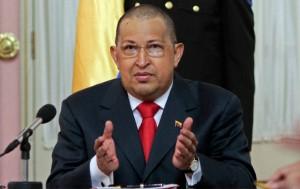Less than five months after revealing that he had undergone emergency surgery to remove a cancerous tumor, Venezuelan President Hugo Chávez announced that Cuban doctors succeeded in getting rid of the remaining cancer.
Since undergoing surgery in Cuba in June, Chávez has received four rounds of chemotherapy, both in Cuba and Venezuela, according to the Washington Post. In a statement last Thursday, Chávez said that tests had shown that the treatment was successful and he is now cancer-free.
Although Chávez claims to be cancer-free, there is still much confusion about the president’s health because he never made public what type of cancer he had been suffering from.
“I think the wishes of the patient must be respected,” said Dr. Fidel Ramirez, one of Chávez’s personal doctors, at a press conference. “The president has a cancer that was located in the pelvic region. It was treated successfully and in time, and I think that’s sufficient for everyone.”
Despite what seemed to be good news, the president had to deal with remarks made by Dr. Salvador Navarrete, a Venezuelan surgeon who claims to be the president’s former personal surgeon. Navarrete said in an interview to Mexican magazine “Milenio” that President Chávez’s prognosis was not good and that his life expectancy could be as little as two years, according to The New York Times.
The current team of doctors working for President Chávez rejected Navarrete’s claims, saying that he was never the president’s personal surgeon and assuring that he doesn’t have access to his medical information.
Now that Chávez is healthy and recovering, his attention is shifting towards the upcoming presidential elections in Oct. 2012. However, following his brush with cancer, many Venezuelans may believe that he is too weak to remain in power.
“Chávez remains popular,” said Ruth de Krivoy, former president of the Central Bank of Venezuela, in a report for the think tank GlobalSource Partners. “His health remains a secret, but he is being portrayed as a leader on the road to recovery, prepared to continue ruling the country.”
George Guo, associate professor of political science, believes that if Chávez continues to provide social programs to the poor, he will not lose their support. However, he must improve the quality of life of all citizens before he can also attract support from the middle class.
“To a certain degree he will appear weak, especially to the middle class,” said Guo. “However, the poor people still view him as a symbolic figure who can continue to lead the country.”
According to the GlobalSource Partners’ report, a recent poll found that 35 percent of the population considers itself “chavista” (Chávez supporters), 28 percent supports the opposition, and 35 percent define themselves as non-aligned — so there is room for both sides to lure more supporters.
Regardless of his recent health issues or any polls, Chávez is still very confident. While speaking on the state television channel, he said, “It’s easier for a donkey to pass through the eye of a needle than for you to beat me.”
Guo has a feeling that the next election will be much closer because the opposition is gaining momentum.
“Even though he is successful, there are still a lot of social problems that he has not fixed, like crime and rising inflation,” said Guo. “As long as those problems continue to exist, they will undermine his power.”

